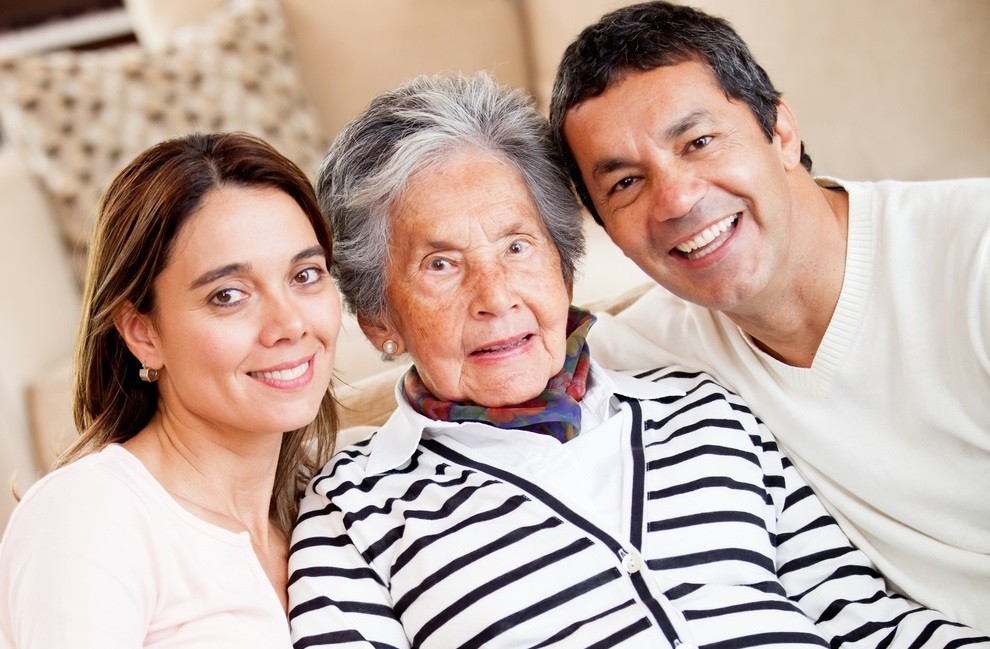Leslie helped her mum and dad downsize to their little cottage. Both 70, at the time, they were fit for their age. But mum wanted less housework and dad a smaller yard. Now, at 75, mum has Parkinson's disease, and Leslie is over 50 with two kids in college. Leslie is a Purchasing Manager looking forward to travel with her husband Mick at retirement. But, now Leslie worries about mum and dad being home alone without home care services.
WHAT SHE SEES
Leslie visits mum and dad twice a week. She always finds mum napping and pills by her bedside. Dad seems quieter than usual, watching TV, and avoiding daily chores. Always happy to see Leslie, Dad had less energy.
Small issues continued until she became concerned for their healthcare and personal needs. She and Mick always enjoyed her parents' company, but everyone enjoyed their independence. Leslie figures this was no longer possible without home care services for her parents.
Leslie shortly noticed dad was keeping up his regular routine, but he was increasingly unkempt. Mum was not responding to her medications, and it was clear that mum was not taking care of her personal hygiene. When her parents denied they needed help, Leslie put her foot down.
WHAT TO DO?
Overwhelmed by guilt and inadequacy, Leslie reviewed what she knew:
- Medications were not taken.
- Personal hygiene was ignored.
- Household chores were not done.
- Energy was low.
- Dad was not driving, and the pantry was bare.
Taking care of these problems herself was increasingly a sacrifice for her, her family, and their financial situation. It was time to look into home care services and to let her parents know why caregivers are important.
1. IDENTIFY THE NEED
After a lot of talk with her husband Mick and her parents, Leslie decided her mum and dad clearly needed some basic care. If someone could monitor their medications and nutrition, Leslie was convinced their personalities would return to normal. More needs might follow, but she had time to plan.
2. DO THE RESEARCH
Leslie did her research into home care services:
- Respite Care relieves primary caregivers of the stress and burden of daily and constant care. Leslie figured respite care was a good place to start. Respite care assists with personal care, household tasks, and transportation.
- Overnight Care promises Leslie the comfort that her parents are sleeping well. It will insure mum gets her pills at the hours required and get mum showered and tucked in well.
- Companionship for mum lets dad resume his interests confident in mum's care when she has a companion to join her for tea and take a walk.
- Registered Nursing Care offers regular assistance from qualified nurses specifically experienced with Parkinson's.
- Personal Care includes carers trained in intimate care, such as showering, dressing, feeding, toilet care, and personal hygiene.
Of course, there are Veterans' Care home care services, Intensive Family Support (IFS), and Services for Special Needs Groups, but Leslie does not feel they match their needs.
3. MAKE A PLAN
With care, dad is more than well prepared to talk about his own needs and financial situation. They do not keep mum out of the loop, but Leslie and Mick start a series of meetings with her parents to lay out their home care services options. They try to keep it light, but they would like to secure mum and dad's buy-in to a home care services plan. Everyone understands that all Leslie wants is to be able to leave mum and dad home alone without worry.
Home Care Packages
The Home Care Packages program is a government-subsidized program that provides long-term support for older people who want to stay living at home. There are four levels of Home Care Package for different levels of care and support needs. Each level receives a different amount of funding.
WHY ARE CAREGIVERS IMPORTANT?
A family caregiver is a person who provides any "type" of physical and emotional care for an ill, elderly or disabled loved one at home.
In most cases, the primary carer is a spouse, partner, or adult child and more often than not take on the responsibilities of the person needing support, while still providing for themselves and often other family members.
Important tasks and roles of a caregiver can include:

ADVOCATES
At times elderly loved ones are not entirely forthcoming with their physical or emotional needs and tend to downplay their pain when speaking with doctors. Carers play an essential role in honest communication between medical authorities, allied health personnel & and loved ones by upholding their preferences for treatment options when they cannot or will not speak for him or herself for varying reasons.
PERSONAL CARE
Many caregivers may help with daily activities such as dressing, bathing, toileting, arranging appointments etc. Household Chores - Carers are often in charge of preparing meals, doing chores or laundry, shopping for groceries or paying bills.
EMOTIONAL SUPPORT
When faced with a severe diagnosis, loved ones can be entirely overwhelmed by emotional turmoil that can quite often follow a determination or change of physical mobility. Caregivers are often tasked with the imperative duty of providing support & encouragement for loved ones as well as themselves. Keeping open communication is critical in the relationship between a caregiver and their loved one. It is essential to both openly share feelings and remain empathetic to the situation.
